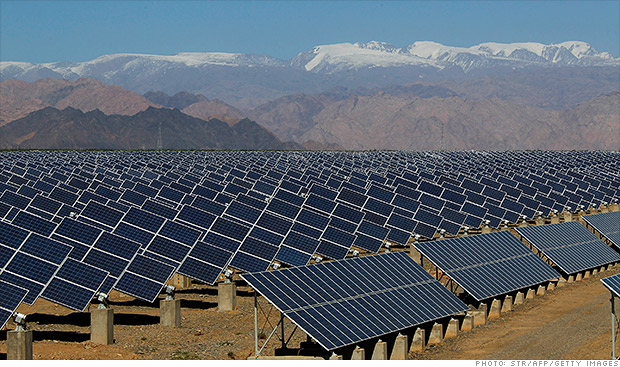China’s 14GW installed solar goal is looking more and more ambitious, after a new report from Deutsche Bank cast doubt on the nation’s ability to achieve the 2014 target, due to policy uncertainty and difficulties with project financing and logistics.
The report – published on Monday by Deutsche analysts Eric Cheng, Michael Tong and Vishal Shah – said that recent site visits and meetings with Chinese solar companies had confirmed the bank’s earlier view “that achieving China’s 2014 14GW solar installation target could be challenging” without increased policy certainty.
In particular, the report pointed to various problems in the implementation of the 8GW target for distributed solar power. It says it might only achieve one quarter of that amount based on current measures.
The situation is significant for the global solar industry, because China was expected to be the biggest market in 2014, and was to underpin much of the demand, particularly Chinese-based manufacturers. If Deutsche’s assessment is correct, then Japan may emerge as the biggest market this year.
The report lists the key hurdles for China in meeting the 14GW target as: difficulties in securing project financing; implementation issues for distributed solar power; grid curtailment issues; and delayed payment of subsidies.
“Permitting process for utility scale projects is likely to slowdown once the 6GW target is reached and relatively low returns along with concerns over counter- party risk and lack of bank financing are likely to result in only 1-2GW of (distributed generation) installations vs government target of 8GW,” the analysts write.
Among the measures being considered are a doubling in distributed solar incentives to around RMB 1/kWh from the current incentive of RMB42c/kWh; and a removal of counterparty risk by getting the state grid to pay for incentives over the next 20 years.
“Though there are discussions to shift the mix towards more utility-scale projects and introduce additional measures to incentivise investment in distributed generation, these look unlikely to be finalized until 3Q at the earliest,” the report said.
“We continue to see risks of softness in demand and product pricing in 2Q14 as headwinds for the sector in the near term,” it says. However, it says if policy is improved then demand for distributed generation could likely increase to the 8-10GW run-rate.
The findings are interesting, considering China was to have been one of this year’s two biggest markets, alongside Japan, accounting for large slice of output from manufacturers.
But they may help explain recent downgrades from big PV market players, such as Trina Solar, which this week warned it would fall far short of its previous sales forecasts for the just-ended first quarter.
This followed a similar warning from Yingli Green Energy last Thursday, that it would ship fewer solar modules in the first quarter than expected. Yingli attributed this adjustment to seasonal weakness and problems with a project in Algeria.










